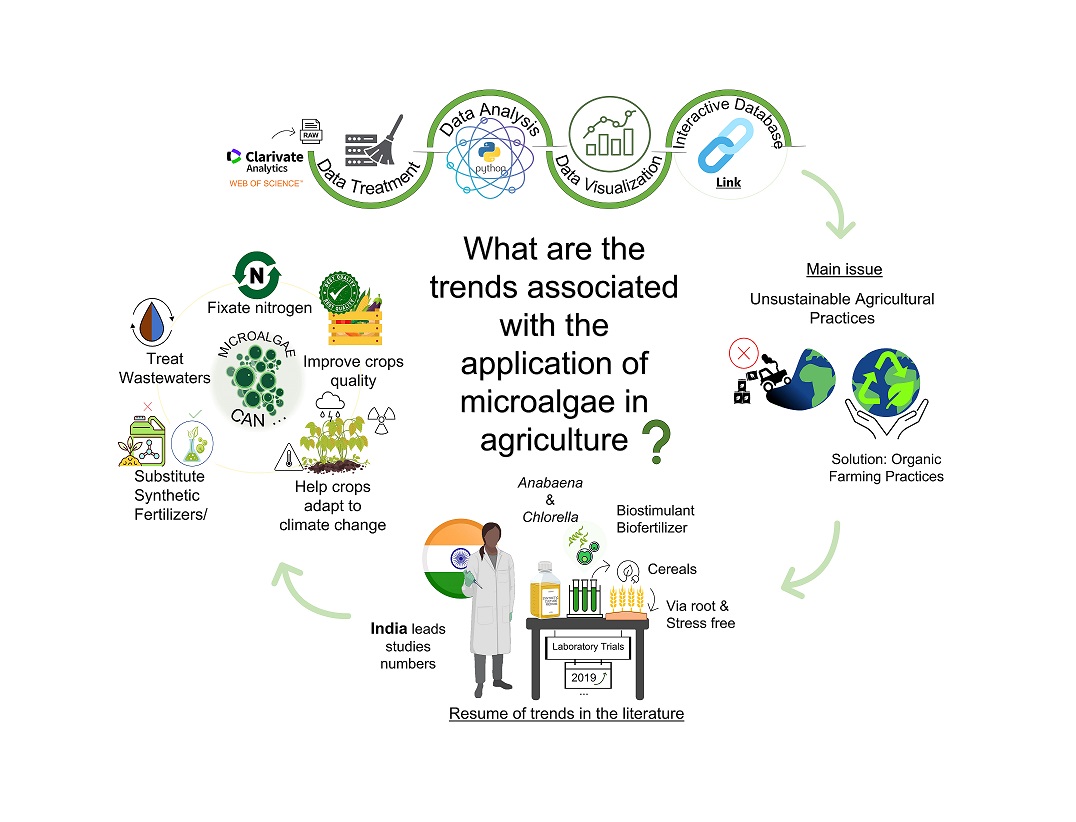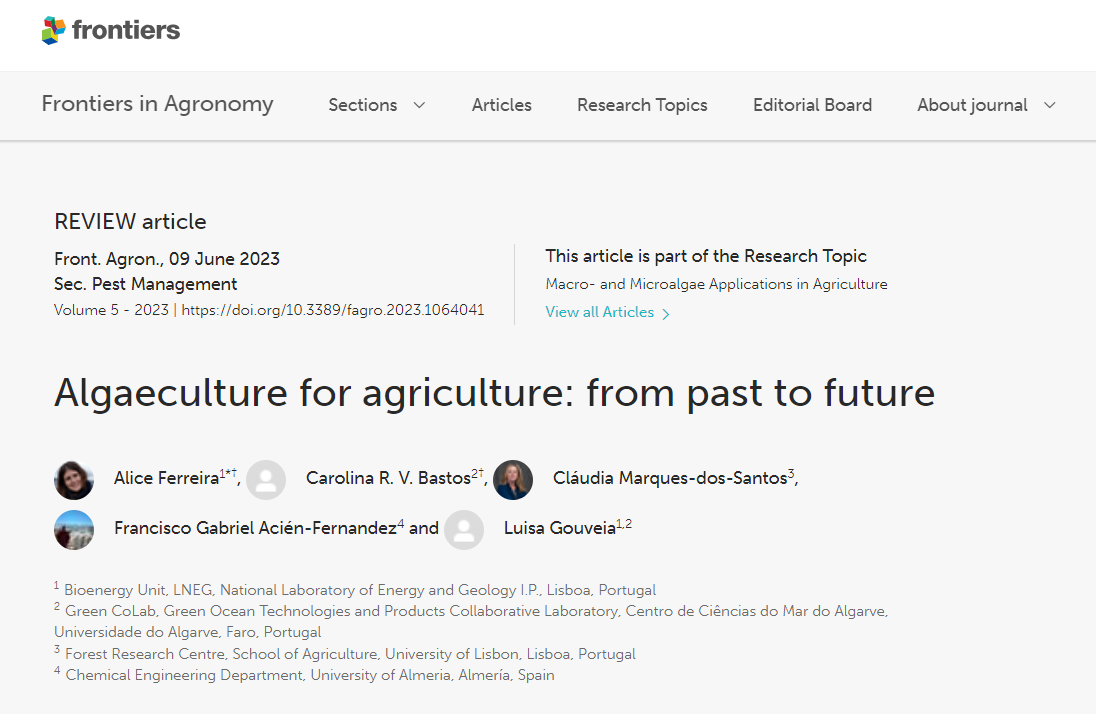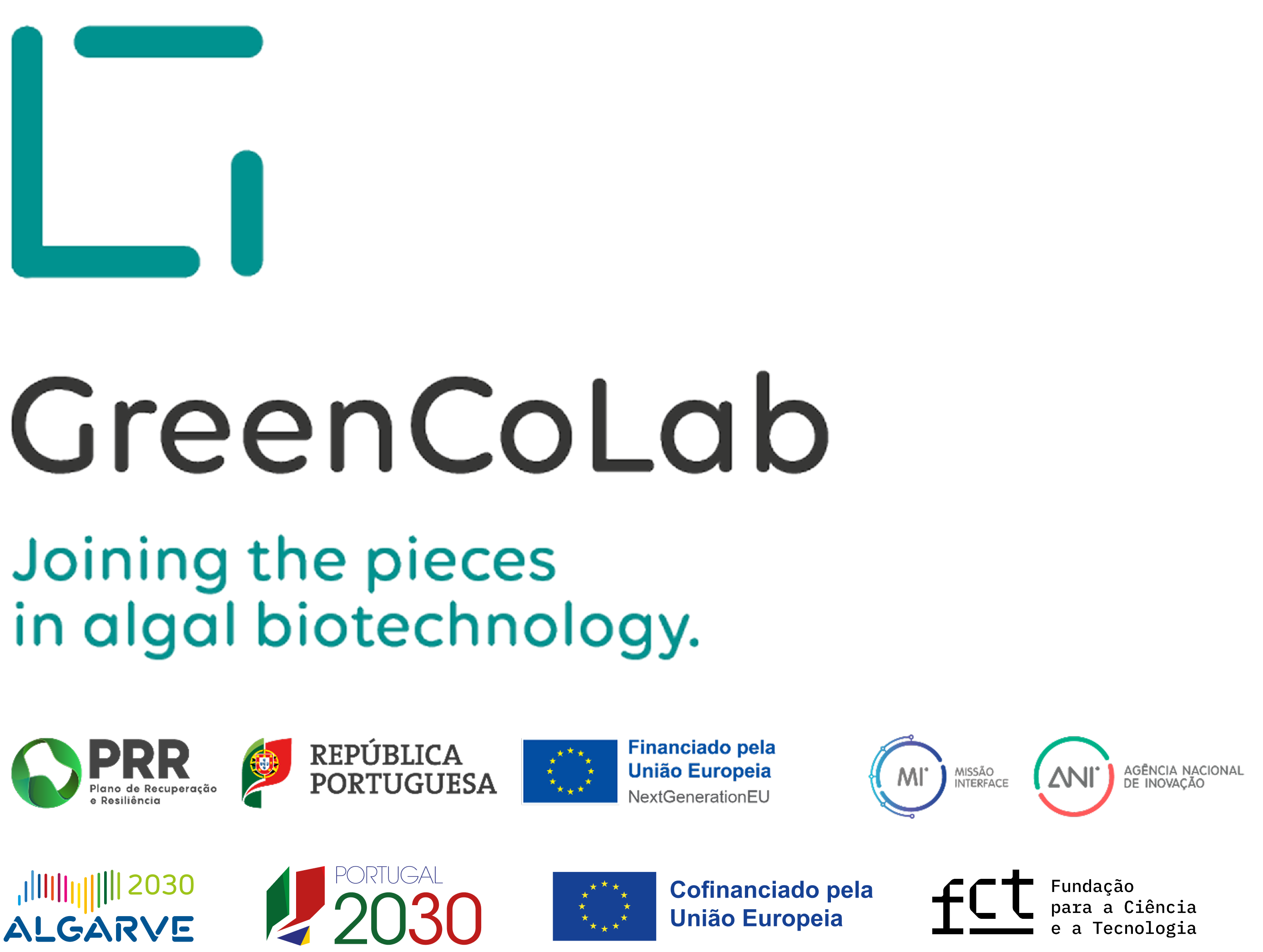

TITLE
Algaeculture for agriculture: from past to future
JOURNAL
Frontiers in Agronomy
AUTHORS
Alice Ferreira, Carolina R. V. Bastos, Cláudia Marques-dos-Santos, Francisco Gabriel Acién-Fernandez, Luisa Gouveia
ABSTRACT
The continuous growth of the world population has imposed major challenges on agriculture. Consequently, farmers generalized the overuse of synthetic fertilizers and pesticides to meet the global food demand. Although these products have helped many developing countries increase their crop yield, they have simultaneously resulted in many issues, mainly the decline of soil fertility and degradation of local ecosystems due to soil, water, and air contamination, combined with their non-renewable nature and increased costs. For agriculture to become more sustainable, the use of alternative biological products, with recognized beneficial effects on plant yield and health, must be expanded. In this context, microalgae and cyanobacteria are rich sources of nutrients and bioactive metabolites, which have been gaining attention from researchers and companies for their ability to improve plant nutrition, growth, and tolerance to stress. This review gives an overview of the research work that has been done in the last two decades, regarding the use of microalgae and cyanobacteria (blue-green algae) as biofertilizers, biostimulants, and biopesticides. This work identified trends and challenges and highlights the use of microalgae to recycle the nutrients from wastewater to improve plant productivity while reducing the fertilizer and water footprint for more sustainable agriculture practices.



